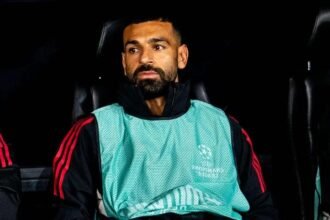Tottenham and Newcastle both punched above their weight last season to earn Champions League qualification. But the prize has come with a twist: UEFA’s stringent squad registration rules are now forcing both clubs into uncomfortable corners. Squad management issues that fly under the radar domestically are now impossible to ignore in Europe—and both clubs are learning just how ill-prepared they are.
At the core of the issue is a fundamental difference between Premier League and UEFA registration rules. In the Premier League, you can register up to 25 players in your main squad, provided at least eight are classified as “homegrown”—players trained in England for at least three years before turning 21. Under-21 players can be named on a separate List B and don’t count toward the main squad limit.
UEFA, however, raises the bar. In the Champions League, a List A squad still maxes out at 25 players—but the eight homegrown slots are split into two tougher subcategories: four club-trained players (those who spent three years at the club between 15 and 21) and four association-trained players (those trained at any English club). That’s already a challenge for clubs with a less-established academy pipeline.
And then there’s the List B twist: UEFA only allows players on that list if they’ve been at the club for at least two consecutive years. That rule locks out a lot of young talent that Premier League sides have grown accustomed to leaning on.
Tottenham’s European Headache
Spurs are the poster child for this mess. For domestic purposes, they’re fine. They have a solid contingent of homegrown players—Brandon Austin, Djed Spence, James Maddison, Brennan Johnson, Ben Davies, Kevin Danso, and likely Morgan Gibbs-White. There’s a promising batch of under-21s like Lucas Bergvall, Archie Gray, and Mathys Tel, who can all slot in comfortably on the Premier League’s unrestricted List B.
But that same flexibility vanishes under UEFA’s microscope. Spurs can only name one club-trained player in Brandon Austin. That means they fall three short of UEFA’s quota for a full 25-man squad, leaving them with just 22 available List A spots.
And it gets worse. Players like Bergvall, Gray, Tel, and Luka Vuskovic don’t meet UEFA’s two-year List B requirement. So if Spurs want to use them in Europe, they have to burn one of their precious unrestricted spots.
Kevin Danso, who qualifies as homegrown domestically thanks to a stint at Reading, doesn’t meet UEFA’s definition either. So he, too, takes up a spot. The result? A bloated 30-man squad ineligible for List B and only 22 slots to fit them into.
That leaves Spurs with tough decisions. Do they register both first-choice keeper Guglielmo Vicario and backup Antonin Kinsky, knowing it eats into their already stretched 17 unrestricted slots? Or do they gamble on having 20-year-old Aaron Maguire on the bench in Europe, a keeper yet to feature in any senior matchday squad?
The squad imbalance is particularly glaring in defense. Pedro Porro and Destiny Udogie are locked in as first-choice full-backs, but behind them, the only cover is Djed Spence. There are no academy full-backs eligible for UEFA List B to ease the strain.
This is why Spurs are seriously considering bringing back Kyle Walker-Peters or Dennis Cirkin. Both are club-trained, immediately eligible, and offer depth without forcing another reshuffle. Under normal circumstances, these signings wouldn’t even be on the radar. But right now, they’re logical, if not essential.
Why Spurs Might Do Nothing at All
Ironically, the most Spursy move might be to do nothing at all. These headaches are short-term. By the 2026/27 season, both Gray and Bergvall will qualify for List B. A year later, they’ll become club-trained and solve two of Spurs’ biggest registration issues.
That’s part of the reason why this whole saga feels slightly absurd. Spurs could theoretically sign a club-trained full-back just to plug a one-season European hole, or they could simply grit their teeth, roll with a short squad, and ride it out until the system starts working in their favor.
This, of course, would be less of a problem if they still had Harry Kane—who not only carried the team on the pitch but also ticked the club-trained box with ease. The value of having top-tier talent who also satisfies UEFA criteria is suddenly painfully clear.
Newcastle’s Quieter Crisis
Spurs aren’t alone. Newcastle are staring at a different version of the same problem. The Magpies have reportedly rejected a bid from Leeds for Sean Longstaff. On paper, it makes sense—Longstaff has slipped down the pecking order, and the club could use the funds.
But there’s a catch: Longstaff is the only player in Newcastle’s first-team squad who qualifies as club-trained. Offloading him would reduce their Champions League List A squad to just 21 players.
They’ve been down this road before. Last season, Newcastle submitted a 23-man squad for Europe and were quickly hit by an injury crisis, finishing bottom of their group. Selling Longstaff might leave them just as vulnerable again.
Their fallback options are limited. Fraser Forster is a potential free-agent solution, while Tim Krul’s name has been floated. Both are older, both are experienced, and both could fill quota spots—but neither moves the needle competitively.
Newcastle could also keep Longstaff around purely as a squad registration tool, an unglamorous but pragmatic solution. But it raises the broader issue: UEFA rules incentivize keeping players for formality’s sake, while financial rules (PSR) encourage cashing in on homegrown talent to boost profit margins. It’s a maddening contradiction.
A Game of Numbers, Not Just Talent
What’s happening at Spurs and Newcastle isn’t just about quality or ambition. It’s about numbers. More specifically, it’s about which numbers UEFA cares about and how that intersects with squad building.
Clubs that rely heavily on recruiting from abroad or cycling in high-potential young players are suddenly punished when the Champions League rolls around. And for all the talk of building “projects,” the raw mechanics of UEFA registration can undermine even the best-laid plans.
So Spurs may have to carry unregistered players through a whole European campaign. Newcastle might keep a player they no longer need just to meet a quota. Both clubs are learning the hard way that qualifying for the Champions League is one thing—being ready for it is something else entirely.











